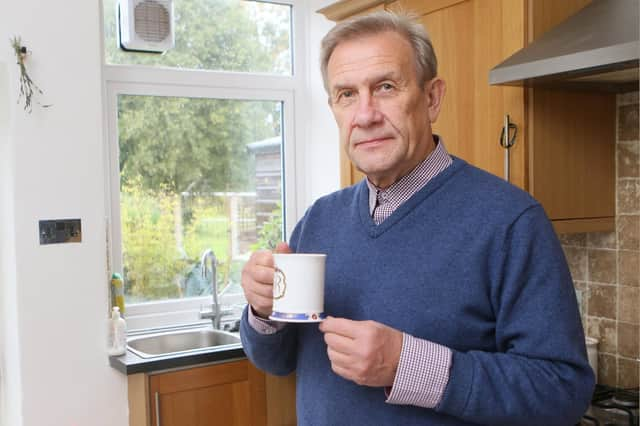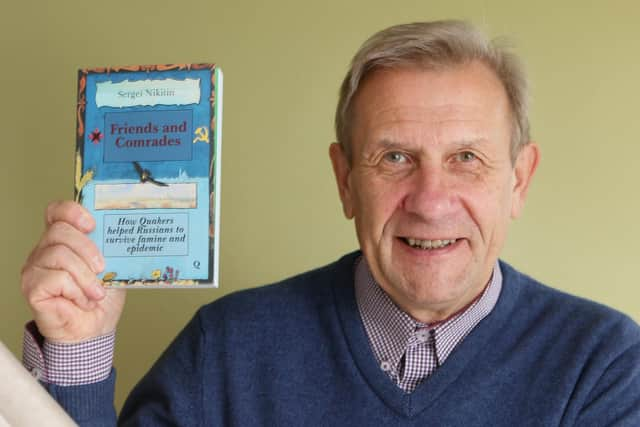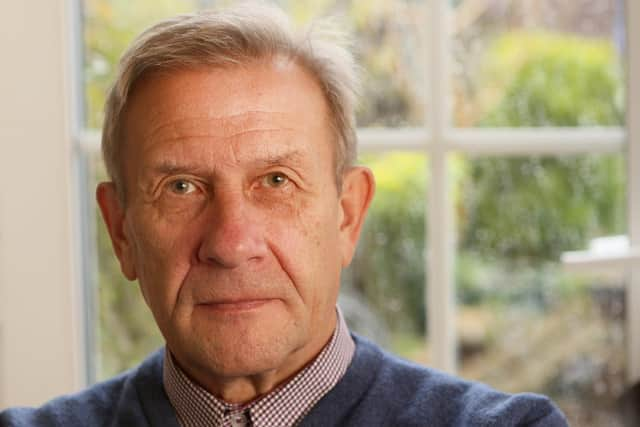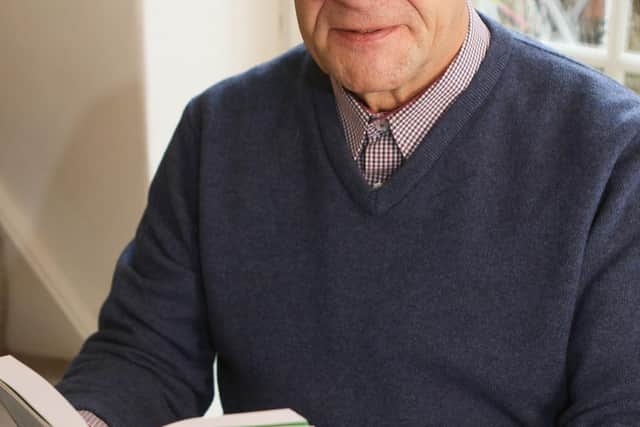Russian man who relocated to High Peak speaks of facing fear and arson attacks


Having worked with the charity Amnesty International in the Russian capital Moscow for 14 years, Sergei once found police banging on his door after an advert wrongly accused him of supporting terrorists.
But now he lives a much more peaceful life, acting as a translator helping Ukrainian refugees who have settled in the High Peak. The 65-year-old, who retired to New Mills with his wife Jenny five years ago, said: “Here a knock on the door is not frightening but when I was working in Russia a knock on the door if you weren’t expecting anyone was a terrifying thing.
Advertisement
Hide AdAdvertisement
Hide Ad"I remember while I was working with Amnesty International the Russian government made a propaganda advert saying those working with the charity were supporting terrorists and my face was shown in the clip which was broadcast all over the country.


"The police came knocking but as you never answer your door I didn’t open it. Thankfully for whatever reason they decided not to break down my door so I’m still here to tell the tale.”Sergei was born in a small rural town in Russia and got interested in the English language after listening to The Beatles and then made a pen friend in England.
He has been involved in historical research work on Quakers and Russia since 1996.
He said: “The more I learned about Quakers the more I respected their pacifist choices. Everyone has to do military service in Russia but when I was of conscription age I hid because I refused to fight."
Advertisement
Hide AdIn 1999, he started working for an international Quaker organisation called Friends House Moscow as a director of the office. From 2003 he worked as the Head of Amnesty International.
Advertisement
Hide Ad

He worked for the charity for 14 years and was involved in promoting human rights and leading campaigns and petitions.
He said: "One of the key things I was a part of was trying to abolish the death penalty in Belarus.
“I was doing human rights work in the mid 2000s but it felt like science-fiction and something completely out of people’s reach to many as there were no human rights at all.”
Advertisement
Hide AdHe also worked with the United Nations and made trips to New York to help pass the Arms Trade treaty which regulates the international trade in conventional weapons.


However, his work made him a target and his office was torched in an arson attack.
Advertisement
Hide AdThankfully Sergei has been able to start a new life in New Mills with his wife, who comes from the High Peak and had been working in Russia when the pair met. The couple, who have a son together, left Russia for the High Peak in 2017.
Sergei said: “When I first arrived here I couldn’t believe how friendly people were.
Advertisement
Hide Ad"People were smiling at each other in the street and the first time I went to the supermarket the lady on the till said ‘alright love’.
"This is worlds apart from how things are in Moscow. You don’t make eye contact, you don’t smile at anyone and you certainly don’t thank shop assistants and bus drivers."
Speaking of the Russian war against Ukraine, Sergei said it is a ‘true disaster which will rip apart thousands of families’.
Advertisement
Hide AdBefore the war broke out Sergei and Russian activist Simon Cosgrove had a weekly podcast where they spoke to human rights defenders in Russia.
"For their own safety we have had to stop,” he said.
Advertisement
Hide AdHe was receiving his Russian pension but that has stopped now since the conflict started.
“Everything has changed.”
In recent months he has been working with Buxton charity the Zink Project acting as a translator to help those refugees fleeing their homeland.
"Most people in Ukraine can speak Russian so we have been communicating in Russian,” Sergei said.
"We have had families around our home and I’ve baked speciality cakes and beetroot soup to give them the things they may be missing.
Advertisement
Hide AdAdvertisement
Hide Ad"I also love showing people around New Mills. It’s a great town with a theatre and a lovely community and I think people need to understand the culture of the place they are living in.”For the last 25 years Sergei has been researching how the Quakers helped after the Russian famine in 1923.
He published his research in 2020 in Russia but has now translated the book and released it in English.
He said: “In the 1990s I met people who remembered the Quakers feeding them when they were young children.
"Half a million people were fed during those difficult times but it has sadly become a forgotten part of history.
Advertisement
Hide Ad"As Russia plunges ever deeper into war with Ukraine, the rewriting of history has been intensified by Moscow.
Advertisement
Hide Ad“Pages of relations between Russia and the West are torn out as soon as they occur.
”To restore the truth these pages must be pasted back into history.”
Friends and Comrades, published by Quacks Books, is available from Amazon, priced £12.99. The New Mills High Street Books and Records shop also has the book on sale.